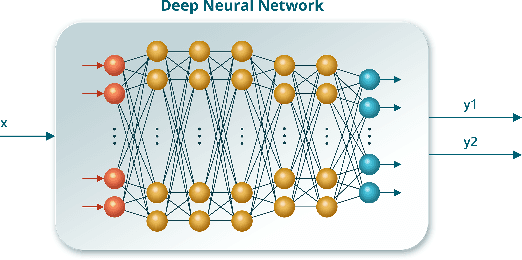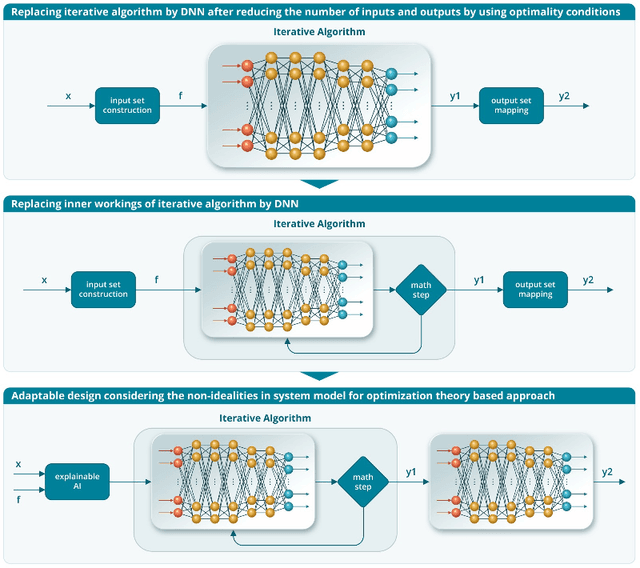Integrating Optimization Theory with Deep Learning for Wireless Network Design
Paper and Code
Dec 11, 2024



Traditional wireless network design relies on optimization algorithms derived from domain-specific mathematical models, which are often inefficient and unsuitable for dynamic, real-time applications due to high complexity. Deep learning has emerged as a promising alternative to overcome complexity and adaptability concerns, but it faces challenges such as accuracy issues, delays, and limited interpretability due to its inherent black-box nature. This paper introduces a novel approach that integrates optimization theory with deep learning methodologies to address these issues. The methodology starts by constructing the block diagram of the optimization theory-based solution, identifying key building blocks corresponding to optimality conditions and iterative solutions. Selected building blocks are then replaced with deep neural networks, enhancing the adaptability and interpretability of the system. Extensive simulations show that this hybrid approach not only reduces runtime compared to optimization theory based approaches but also significantly improves accuracy and convergence rates, outperforming pure deep learning models.
 Add to Chrome
Add to Chrome Add to Firefox
Add to Firefox Add to Edge
Add to Edge